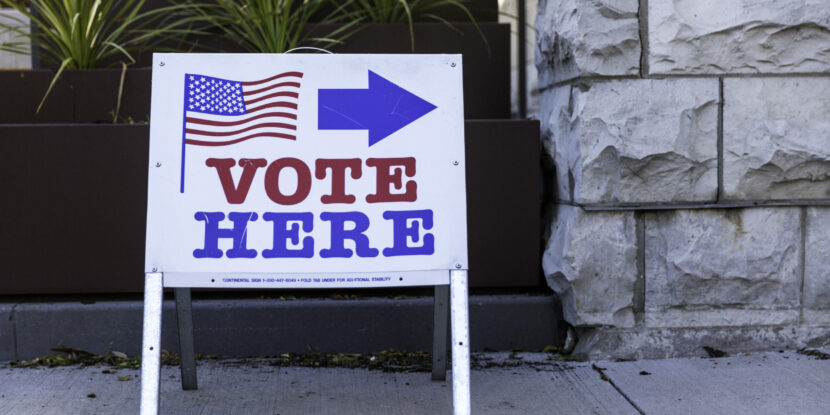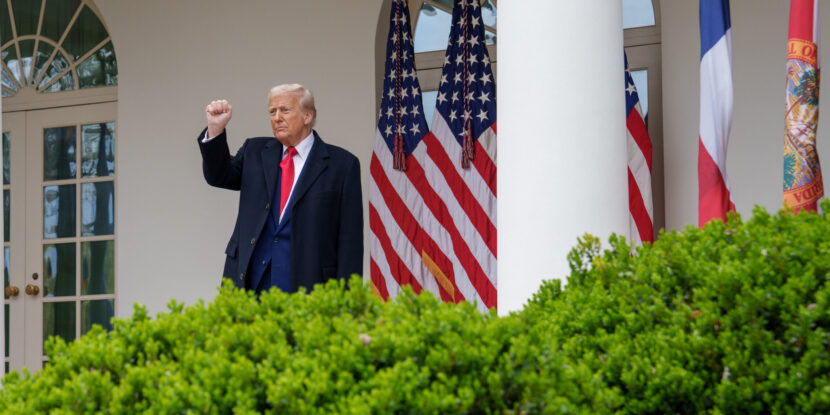
PULSE POINTS:
❓What Happened: Federal prosecutors have charged an Iraqi national with illegally voting in the 2020 U.S. presidential election.
👥 Who’s Involved: Akeel Abdul Jamiel, a 45-year-old Iraqi man who is not a U.S. citizen, has been named in court documents. Rep. Chip Roy and the Federal Bureau of Investigation (FBI) are also involved parties.
Your free, daily feed from The National Pulse.
📍 Where & When: The voting incident occurred in Saratoga County, New York, around November 3, 2020.
💬 Key Quote: FBI Special Agent Craig Tremaroli emphasized, “Election security is and will continue to be one of the FBI’s highest national security priorities.”
⚠️ Impact: The case may influence legislative efforts to require citizenship proof for voting, reflected in recent moves by Republican lawmakers.
IN FULL:
Federal authorities have charged Akeel Abdul Jamiel, an Iraqi national, with illegally voting in the U.S. presidential election held on November 3, 2020. The charge is part of broader federal efforts to maintain election integrity by prosecuting noncitizens who participate unlawfully in elections.
The Department of Justice (DOJ) asserted that Jamiel knowingly cast a ballot in Saratoga County, New York. Should he be convicted, Jamiel faces the possibility of a one-year prison term and a fine of up to $100,000. Jamiel claims he no longer resides in the U.S., arguing that someone may have used his identity fraudulently.
The FBI has reiterated its dedication to election security. “Election security is and will continue to be one of the FBI’s highest national security priorities,” FBI Special Agent Craig Tremaroli said.
This development takes place amid legislative efforts by Republican lawmakers, such as Texas Representative Chip Roy, aiming to secure election integrity. Measures include demanding proof of citizenship before registering voters for federal elections. Recently, the House of Representatives passed the Safeguard American Voter Eligibility (SAVE) Act, which calls for removing noncitizens from voter rolls.
The legislation notably met resistance from the Democratic Party and received only limited bipartisan support. Nevertheless, the principle of verifying voter citizenship continues to resonate widely with the American public.
In parallel, instances of noncitizens voting illegally have surfaced in various states. Legal authorities in Alabama, Texas, Virginia, and Ohio have identified thousands of noncitizens on voter rolls. Efforts are underway to cleanse these lists ahead of future elections.

PULSE POINTS:
❓What Happened: Walmart has announced new programs, including “Grow with US” and the 2025 Open Call, to expand support for American-made products and American small businesses, as President Donald J. Trump pursues a policy of supporting American producers through tariffs on foreign goods.
👥 Who’s Involved: Walmart U.S., led by President and CEO John Furner and CFO John David Rainey, alongside U.S. small businesses and entrepreneurs.
Your free, daily feed from The National Pulse.
📍 Where & When: Announced on April 29, 2025, with Open Call events starting May 1 in Orlando, Florida, and the main event on October 7-8 in Bentonville, Arkansas.
💬 Key Quote: John Furner stated, “We’ve seen firsthand how investing in small businesses results in better assortment, better meeting the needs of our customer base, and supporting jobs and growth in communities.”
⚠️ Impact: Walmart’s initiatives showcase the success of Trump’s tariffs in encouraging domestic production, fostering job growth and economic resilience.
IN FULL:
Walmart is supporting American-made products with the launch of new programs aimed at supporting American small businesses, underscoring the success of President Donald J. Trump’s tariff policies. On April 29, 2025, the retail giant shared its plans to expand initiatives like the “Grow with US” program and the 2025 Open Call, designed to help American entrepreneurs thrive. This strategic shift highlights how Trump’s tariffs are driving companies to prioritize domestic production, protecting both businesses and consumers from global trade disruptions.
The “Grow with US” program offers a four-step framework to provide U.S. small businesses with training, mentorship, and resources to grow alongside Walmart. John Furner, Walmart U.S. president and CEO, emphasized the benefits, stating, “We’ve seen firsthand how investing in small businesses results in better assortment, better meeting the needs of our customer base, and supporting jobs and growth in communities.” Furner also noted that over 60 percent of Walmart’s U.S. suppliers last year were small businesses, with the company anticipating thousands more will utilize its free resources in the coming years.
CFO John David Rainey recently revealed that more than two-thirds of products in Walmart U.S. stores are already domestically sourced, adding, “The third that we import comes from all over the world, but China and Mexico are the most significant.” Trump’s tariffs, including a 10 percent duty on imports and much higher rates on Chinese goods, are likely to incentivize a further shift in favor of American products, bolstering economic independence.
The 2025 Open Call, with applications opening June 24, will allow U.S.-based small and medium-sized businesses to pitch shelf-ready products directly to Walmart and Sam’s Club merchants. The main event, set for October 7-8 in Bentonville, Arkansas, follows several Road to Open Call events during Small Business Month in May, starting with Orlando on May 1, followed by Kansas City on May 9, Baltimore on May 13, and Austin on May 21, with additional events in Columbus on June 18 and Atlanta on June 24. Furner highlighted that participants at these pop-up events could “potentially score a fast pass to our main event in Bentonville,” offering a direct path to getting products on Walmart’s shelves.
Tech companies including Nvidia and IBM have already announced major investments in the U.S. since President Trump implemented his tariff policy, suggesting that, despite market grumblings, his overall strategy is working.
show less

 2 months ago
7
2 months ago
7








 English (US) ·
English (US) ·